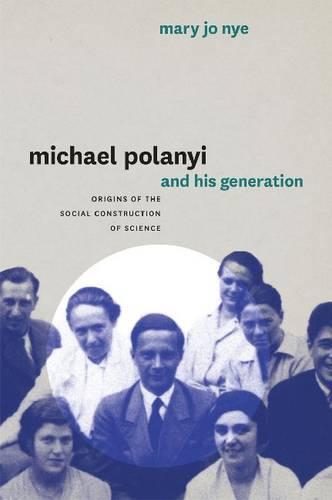Overview
In Michael Polanyi and His Generation, Mary Jo Nye investigates the role that Michael Polanyi and several of his contemporaries played in the emergence of the social turn in the philosophy of science. This turn involved seeing science as a socially based enterprise that does not rely on empiricism and reason alone but on social communities, behavioral norms, and personal commitments. Nye argues that the roots of the social turn are to be found in the scientific culture and political events of Europe in the 1930s, when scientific intellectuals struggled to defend the universal status of scientific knowledge and to justify public support for science in an era of economic catastrophe, Stalinism and Fascism, and increased demands for applications of science to industry and social welfare. At the center of this struggle was Polanyi, who Nye contends was one of the first advocates of this new conception of science. Nye reconstructs Polanyi’s scientific and political milieus in Budapest, Berlin, and Manchester from the 1910s to the 1950s and explains how he and other natural scientists and social scientists of his generation—including J. D. Bernal, Ludwik Fleck, Karl Mannheim, and Robert K. Merton—and the next, such as Thomas Kuhn, forged a politically charged philosophy of science, one that newly emphasized the social construction of science.
Full Product Details
Author: Mary Jo Nye
Publisher: The University of Chicago Press
Imprint: University of Chicago Press
Dimensions:
Width: 1.50cm
, Height: 0.30cm
, Length: 2.30cm
Weight: 0.680kg
ISBN: 9780226103174
ISBN 10: 022610317
Pages: 428
Publication Date: 30 July 2013
Audience:
College/higher education
,
Professional and scholarly
,
Postgraduate, Research & Scholarly
,
Professional & Vocational
Format: Paperback
Publisher's Status: Active
Availability: Manufactured on demand

We will order this item for you from a manufactured on demand supplier.
Reviews
There isn't a lot of current interest in who Polanyi was and how he came to hold the views he did. Mary Jo Nye's excellent and richly researched book aims to tell us and, along the way, uncovers a genealogy for the notion of tacit knowledge that situates it in the force fields shaping much twentieth-century thinking about politics and economics as well as science. (Steven Shapin, London Review of Books) Mary Jo Nye's rich, impressive book recasts the science wars' barbs of the recent past by illuminating the searing politics, intellectual passions, and spirited debates that drove Polanyi and his generation to think about science in social terms. (David Kaiser, Science)
[Nye's] rich, impressive book recasts the science wars barbs of the recent past by illuminating the searing politics, intellectual passions, and spirited debates that drove Polanyi and his generation to think about science in social terms. --David Kaiser Science
Author Information
Mary Jo Nye is the Thomas Hart and Mary Jones Horning Professor of the Humanities Emerita and professor of history emerita at Oregon State University.




